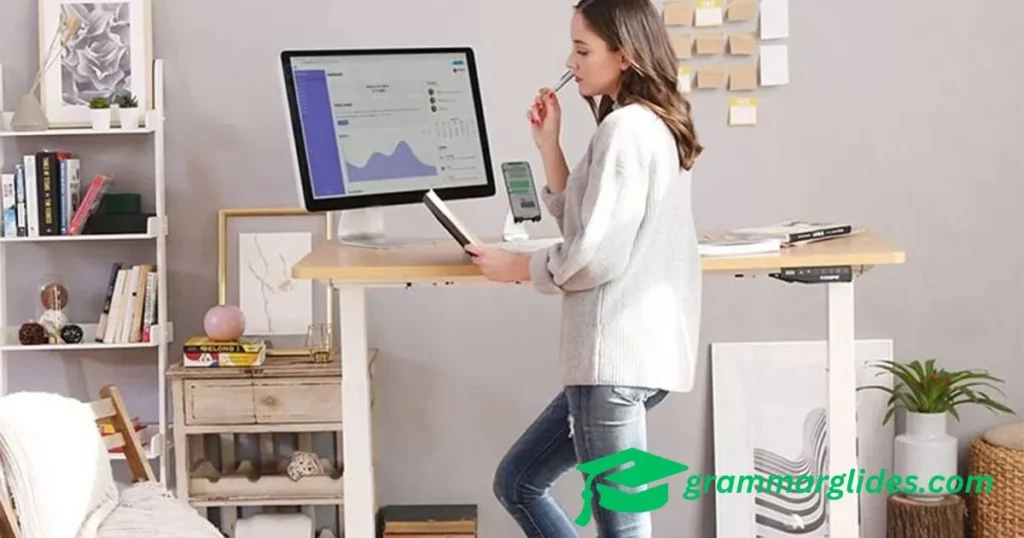“Expressing uncertainty with professionalism ensures clarity and respect in communication.”
Uncertainty is natural in the workplace, but how we express it can significantly impact perceptions. Instead of saying, “I am not sure,” using alternative professional phrases can show thoughtfulness, a willingness to collaborate, and a focus on solutions. These phrases soften the uncertainty and keep the conversation constructive.
When navigating professional discussions, your choice of words can enhance clarity and maintain a positive tone. Using polite and professional alternatives also reflects confidence and openness, even when answers aren’t immediately available.
In this guide, we’ll explore 30 refined ways to express uncertainty professionally. Each phrase includes a scenario, examples, and an explanation, ensuring practical application in your work environment.
Other Ways to Say “I Am Not Sure Professionally”
1. “I’ll Need to Double-Check on That”
Scenario: When clarification is required before responding.
Example 1: “I’ll need to double-check on that and get back to you.”
Example 2: “I’ll need to double-check on that to provide an accurate answer.”
Explanation: This phrase shows responsibility and a commitment to accuracy.
2. “I Don’t Have the Information Right Now”
Scenario: When immediate data is unavailable.
Example 1: “I don’t have the information right now, but I’ll gather it for you soon.”
Example 2: “I don’t have the information right now, but let me follow up and confirm.”
Explanation: It emphasizes transparency and willingness to follow through.
3. “Let Me Verify That for You”
Scenario: When verification is needed before responding.
Example 1: “Let me verify that for you and provide a confirmed update.”
Example 2: “Let me verify that for you; I’ll ensure it’s accurate.”
Explanation: This alternative conveys diligence and care in responding.
4. “I’ll Need to Look Into That Further”
Scenario: For situations requiring deeper exploration.
Example 1: “I’ll need to look into that further before providing an answer.”
Example 2: “I’ll need to look into that further; I’ll update you once I have more clarity.”
Explanation: It indicates a proactive approach to understanding the issue.
5. “That’s Outside My Expertise, but I Can Find Out”

Scenario: When the question is beyond your scope.
Example 1: “That’s outside my expertise, but I can find out for you.”
Example 2: “That’s outside my expertise, but I’ll connect with the relevant team for answers.”
Explanation: This phrase acknowledges limits while demonstrating initiative.
6. “I’m Not Entirely Certain at the Moment”
Scenario: When providing partial certainty is possible.
Example 1: “I’m not entirely certain at the moment, but I’ll confirm shortly.”
Example 2: “I’m not entirely certain at the moment, but let me investigate further.”
Explanation: This statement maintains honesty while reassuring action.
7. “I May Need to Consult With My Team”
Scenario: When team collaboration is required for clarity.
Example 1: “I may need to consult with my team to provide you with a complete answer.”
Example 2: “I may need to consult with my team before finalizing the details.”
Explanation: It highlights teamwork and thoroughness.
8. “I’ll Need More Time to Provide an Accurate Answer”
Scenario: When a well-thought-out response is necessary.
Example 1: “I’ll need more time to provide an accurate answer; thank you for your patience.”
Example 2: “I’ll need more time to provide an accurate answer; I’ll update you soon.”
Explanation: This alternative emphasizes precision over speed.
9. “This Requires Further Review”
Scenario: For situations needing detailed analysis.
Example 1: “This requires further review; I’ll share the findings once completed.”
Example 2: “This requires further review; I’ll ensure all details are considered.”
Explanation: This phrase portrays thoroughness and professionalism.
10. “Let Me Gather Additional Details Before Answering”
Scenario: When comprehensive understanding is necessary.
Example 1: “Let me gather additional details before answering your question.”
Example 2: “Let me gather additional details before answering; I’ll get back shortly.”
Explanation: It reassures the recipient of your focus on providing a well-informed response.
11. “I’ll Need to Research That Further”
Scenario: When extensive research is essential.
Example 1: “I’ll need to research that further before providing a response.”
Example 2: “I’ll need to research that further; I’ll update you once I have the details.”
Explanation: This alternative conveys a commitment to thoroughness.
12. “I Need to Check With the Relevant Stakeholders”
Scenario: When others are involved in the decision or information.
Example 1: “I need to check with the relevant stakeholders to confirm this information.”
Example 2: “I need to check with the relevant stakeholders before providing an update.”
Explanation: It reflects professionalism and respect for collaborative processes.
13. “I’d Like to Confirm Before I Proceed”
Scenario: For ensuring accuracy before taking action.
Example 1: “I’d like to confirm before I proceed to avoid any mistakes.”
Example 2: “I’d like to confirm before I proceed; I’ll circle back shortly.”
Explanation: This phrase conveys thoughtfulness and accountability.
14. “I’m Still Gathering Information on That”
Scenario: When the process of obtaining clarity is ongoing.
Example 1: “I’m still gathering information on that; I’ll share updates as I have them.”
Example 2: “I’m still gathering information on that; thank you for your patience.”
Explanation: It reflects active effort in resolving the uncertainty.
15. “I’ll Defer to the Expert on This”
Scenario: When a specialist’s input is necessary.
Example 1: “I’ll defer to the expert on this matter to ensure accuracy.”
Example 2: “I’ll defer to the expert on this; they’ll provide the best guidance.”
Explanation: This statement highlights humility and respect for expertise.
16. “I’m Unable to Confirm at This Time”
Scenario: When you cannot provide confirmation immediately.
Example 1: “I’m unable to confirm at this time, but I’ll revisit this shortly.”
Example 2: “I’m unable to confirm at this time, but I’ll provide clarity as soon as possible.”
Explanation: This phrase acknowledges the limitation while reassuring future action.
17. “I Don’t Want to Speculate Without More Facts”
Scenario: When speculation could lead to inaccuracies.
Example 1: “I don’t want to speculate without more facts; I’ll gather more information first.”
Example 2: “I don’t want to speculate without more facts; let me investigate this further.”
Explanation: It emphasizes a commitment to factual and informed responses.
18. “I May Not Be the Best Person to Answer That”
Scenario: When redirecting the question to someone more suited.
Example 1: “I may not be the best person to answer that, but I’ll connect you with someone who is.”
Example 2: “I may not be the best person to answer that; let me coordinate with the right individual.”
Explanation: This statement maintains professionalism while ensuring the query is addressed.
19. “Let Me Clarify With the Source First”
Scenario: When clarity requires confirmation from the origin of information.
Example 1: “Let me clarify with the source first to ensure accuracy.”
Example 2: “Let me clarify with the source first; I’ll update you shortly after.”
Explanation: It reinforces the importance of precise and reliable information.
Other Ways to Say “I Have a Degree In”
20. “I’ll Provide an Update as Soon as I Have More Information”
Scenario: For assuring updates after additional details are available.
Example 1: “I’ll provide an update as soon as I have more information to share.”
Example 2: “I’ll provide an update as soon as I have more information; thank you for understanding.”
Explanation: This alternative reassures promptness and a sense of responsibility.
21. “I’ll Look Into This and Revert Back”
Scenario: When requiring time to address a query.
Example 1: “I’ll look into this and revert back with all the necessary details.”
Example 2: “I’ll look into this and revert back; I appreciate your patience.”
Explanation: This phrase highlights an active effort to resolve the issue.
22. “That’s a Great Question; Let Me Investigate It Further”

Scenario: When showing appreciation for the query while committing to investigate.
Example 1: “That’s a great question; let me investigate it further and get back to you.”
Example 2: “That’s a great question; let me investigate it further to provide accurate feedback.”
Explanation: It acknowledges the importance of the question while assuring action.
23. “I’d Like to Check a Few Things Before Responding”
Scenario: When a thoughtful response requires additional checks.
Example 1: “I’d like to check a few things before responding; I’ll follow up shortly.”
Example 2: “I’d like to check a few things before responding to ensure my response is accurate.”
Explanation: This alternative balances honesty with a focus on precision.
24. “I’ll Circle Back Once I Have the Details”
Scenario: For indicating a follow-up after more information is available.
Example 1: “I’ll circle back once I have the details; thank you for your understanding.”
Example 2: “I’ll circle back once I have the details to provide a comprehensive update.”
Explanation: It communicates a proactive approach to resolving uncertainties.
25. “I’m Currently Gathering Insights on That”
Scenario: When still collecting relevant data.
Example 1: “I’m currently gathering insights on that and will provide an update soon.”
Example 2: “I’m currently gathering insights on that; I’ll share my findings shortly.”
Explanation: This phrase highlights ongoing efforts to address the question effectively.
26. “I’ll Seek Confirmation Before Providing an Answer”
Scenario: When the situation requires verification before a response.
Example 1: “I’ll seek confirmation before providing an answer to ensure accuracy.”
Example 2: “I’ll seek confirmation before providing an answer; this will avoid any misunderstandings.”
Explanation: This phrase highlights your commitment to delivering accurate information.
27. “Let’s Double-Check This Before Finalizing Anything”
Scenario: When double-checking is essential for accuracy.
Example 1: “Let’s double-check this before finalizing anything to avoid errors.”
Example 2: “Let’s double-check this before finalizing anything; it’s always better to be certain.”
Explanation: It encourages thoroughness and reinforces the importance of accuracy.
28. “I’ll Explore This Further to Provide a Complete Response”
Scenario: When more research is needed for a full answer.
Example 1: “I’ll explore this further to provide a complete response shortly.”
Example 2: “I’ll explore this further to provide a complete response with all necessary details.”
Explanation: This phrase reassures the listener of your diligence in addressing the matter.
29. “Let Me Confirm With My Team Before Responding”
Scenario: When collaboration is necessary to confirm details.
Example 1: “Let me confirm with my team before responding to ensure we’re aligned.”
Example 2: “Let me confirm with my team before responding; I want to provide an accurate answer.”
Explanation: It emphasizes teamwork and accuracy in professional communication.
30. “I’ll Verify This Information and Get Back to You”
Scenario: When information needs verification before sharing.
Example 1: “I’ll verify this information and get back to you as soon as possible.”
Example 2: “I’ll verify this information and get back to you; thank you for your patience.”
Explanation: This phrase communicates a proactive approach while acknowledging the need for accuracy.
Why Is It Better to Offer a Follow-Up Than an Immediate Response?
Offering a follow-up allows time to provide accurate, well-thought-out answers. It minimizes the risk of miscommunication and demonstrates professionalism. This approach fosters trust and ensures that your responses are credible and valuable.
Key Insight
1. Why is it important to phrase uncertainty professionally?
It ensures your communication remains respectful, trustworthy, and solutions-oriented.
2. How can I handle a question I truly can’t answer?
Redirect it to someone qualified or indicate that you’ll investigate and follow up.
3. Should I always explain why I’m uncertain?
Providing a brief explanation shows transparency and strengthens your credibility.
4. Can professional uncertainty be seen as a strength?
Yes, it demonstrates honesty, thoughtfulness, and a commitment to accuracy.
5. How can I ensure timely follow-ups after expressing uncertainty?
Set reminders and prioritize delivering the promised updates to maintain trust.
Conclusion
Navigating professional conversations with phrases that express uncertainty thoughtfully can make a significant difference. By adopting these alternatives, you demonstrate integrity, responsibility, and an ability to handle challenging situations with poise. Whether verifying information, seeking clarification, or consulting your team, these phrases help you maintain professionalism while ensuring accurate communication.

Hi! I’m Lauren Reynolds, the author of Grammar Glides. I create easy-to-follow content that helps you master English with confidence. Let’s make learning English simple and enjoyable together!

